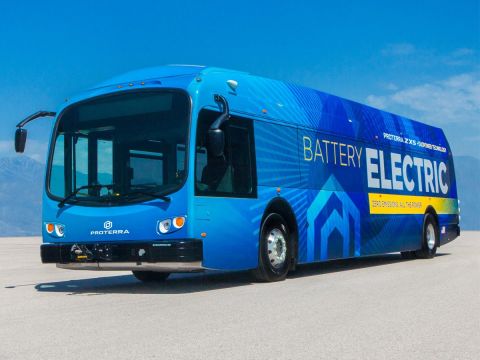Proterra fails to scale up production; files for Chapter 11 bankruptcy protection
Proterra Incorporated, an American electric vehicle (EV) parts maker based in the Burlingame area of California, has confirmed that it has filed for Chapter 11 bankruptcy protection as it failed to scale up production efficiently. Best known for developing battery systems for heavy duty vehicles like buses, Proterra filed for bankruptcy earlier this week, which made it the latest EV sector company to fail in business.
Obviously, the filing for Chapter11 bankruptcy protection took many by surprise, simply because it was a well-established company in the EV sector. Launched in the year of 2004 as an electric transit bus company, it initially enjoyed robust growth. It also attracted a number of high-profile backers like Daimler. As of August 2023, it had delivered as many as 1,000 electric transit buses.
The decision to develop its own battery technology and electric powertrain systems was taken by Proterra in the year of 2015. It developed three business lines, viz. battery systems dubbed Powered, the Transit unit and an EV charging infrastructure business dubbed Energy. It was the company’s battery system business unit that helped it in expanding beyond buses, into cargo vans and off-road equipment that’s used in activities like construction and mining. In 2021, it went public via a merger with a SPAC (special purpose acquisition company), in a deal was valued at approx. $1.6 billion at that time.
Unfortunately, Proterra unduly burned through capital in order to scale its three businesses at the same time, and it eventually failed. It failed to recognize revenue until it started delivering its electric buses. High rates of inflation cut into its margins.
Besides, the special needs of transit agency customers were a big issue for the company to tackle. As every transit agency has different needs or requirements for its buses, every bus contract was required to be widely different from others.
In its Chapter 11 filing, Proterra explained, “These transit agencies demand highly customized buses that align with the other buses in their respective fleets. Therefore, the manufacturing process requires much customization, which makes scaling the business difficult and requires an extensive amount of working capital.”
Nevertheless, Proterra intends to continue to operate. The voluntary filing for protection under Chapter 11 is a ray of hope for the company as the move could strengthen its financial position via a recapitalization or going-concern sale.
